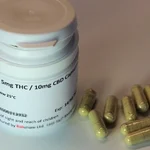Medical marijuana has been proven to be an effective and safe alternative for treating the painful and sometimes debilitating symptoms of rheumatoid arthritis. Studies have shown that medical marijuana is able to reduce pain and inflammation, ease muscle and joint stiffness, and provide a range of other health benefits. While there are potential side effects associated with using medical marijuana, these are generally mild and can be managed. To qualify for medical marijuana treatment, you must meet the criteria set out by your state or country, and there are several forms of medical marijuana available, so it’s important to research and understand these options before making any decisions.
Reducing Pain and Inflammation
Medical marijuana is known to reduce pain and inflammation associated with Rheumatoid Arthritis. It can provide instant relief and make daily activities more manageable. Many patients have reported that medical marijuana has changed their lives by reducing stiffness and swelling in joints as well as reducing fatigue.
Medical marijuana can provide long-term relief for those suffering from Rheumatoid Arthritis.
It is important to discuss with your doctor the potential benefits and risks of using medical marijuana for the treatment of Rheumatoid Arthritis. Your doctor may be able to advise you on the best approach to use medical marijuana for specific situations. It is important to understand the qualifying conditions for medical marijuana, as well as the forms in which it is available, to ensure that you are getting the full benefits of the product.
Use Of Medical Marijuana For Rheumatoid Arthritis Treatment
If you suffer from the chronic pain and inflammation of Rheumatoid Arthritis, medical marijuana may be an option for you. It can reduce pain, inflammation and stiffness, and improve the quality of your life. Before deciding if medical marijuana is right for you, you’ll need to learn more about the qualifying conditions, forms of marijuana, and potential side effects.
Medical marijuana is available in two forms: as dried flower, or as cannabis oil. You’ll need to get a medical marijuana card from your doctor and contact your local dispensary to purchase the product.
Make sure to talk to your doctor about the correct dosage and frequency for your specific condition to get the most benefit. It’s important to be aware of the potential side effects.
Medical marijuana can cause drowsiness, dizziness, and euphoria. It may interact with other medications and can reduce your ability to process and retain information. To reduce your risk of experiencing side effects, make sure to start with a low dose and increase gradually as needed.
Qualifying Conditions
If you’re considering medical marijuana to help treat your rheumatoid arthritis, you’ll need to determine if you meet the necessary qualifying conditions. Generally speaking, most states require that patients suffer from a chronic or debilitating condition such as severe pain, nausea, seizures, or muscle spasms in order to qualify for medical marijuana use. Your physician will be able to advise you as to whether or not your condition would be deemed as qualifying for medical marijuana.
Once you’ve determined that you qualify for medical marijuana, you’ll need to find out what forms it comes in. Generally speaking, medical marijuana comes in the form of edibles, tinctures, ointments, oils, and topical creams.
Your doctor or dispensary can provide you with more information on the different forms and the dosage that would be most suitable for your condition. Before starting any medical marijuana treatment, it’s important to be aware of any potential side effects.
It’s possible that you could experience dry mouth, drowsiness, increased appetite, or impaired memory or judgment. You should always consult your doctor before beginning any treatment program and discuss any potential side effects.
Forms of Medical Marijuana
When it comes to using medical marijuana to help treat Rheumatoid Arthritis, there are several forms that you can choose from. Some of the more common forms of medical marijuana include oils, edibles, tinctures, and topicals. Oils are generally recommended for those who are looking for a more concentrated form of medical marijuana.
Edibles are great for those who want to ingest the medical marijuana in a more discreet form. Tinctures are a liquid form of medical marijuana that can be taken under the tongue or mixed with food or drinks.
Topicals are often used to help reduce inflammation and pain associated with the arthritis.
When deciding which form of medical marijuana is right for you, it is important to consult with a doctor. They can help you decide which form is best suited to your needs and can provide information on potential side effects as well. You should also make sure to use medical marijuana as prescribed in order to avoid any potential risks. With the right form and dosage, medical marijuana can be an effective treatment for Rheumatoid Arthritis.
Potential Side Effects
It is important to remember that while medical marijuana has been known to help treat the pain and inflammation associated with Rheumatoid Arthritis, there are risks of side effects. These can include dry mouth, dizziness, drowsiness, and, in some cases, paranoia. It is important to talk with your doctor or healthcare provider to determine if medical marijuana is right for you.
You should also discuss any potential risks or side effects that may be associated with medical marijuana use.
Your doctor can help you make an informed decision about whether medical marijuana is right for you and your Rheumatoid Arthritis. In addition to discussing potential side effects with your doctor, it is also important to be aware of the potential for psychological and physical dependence if you are using medical marijuana for Rheumatoid Arthritis. If you are using medical marijuana, it is important to assess your tolerance levels and make sure that you use it responsibly.
You should always keep track of how much you are using and make sure you are using it as directed by your doctor. It is important to talk to your doctor if you notice any changes in your symptoms or if you experience any negative side effects.













